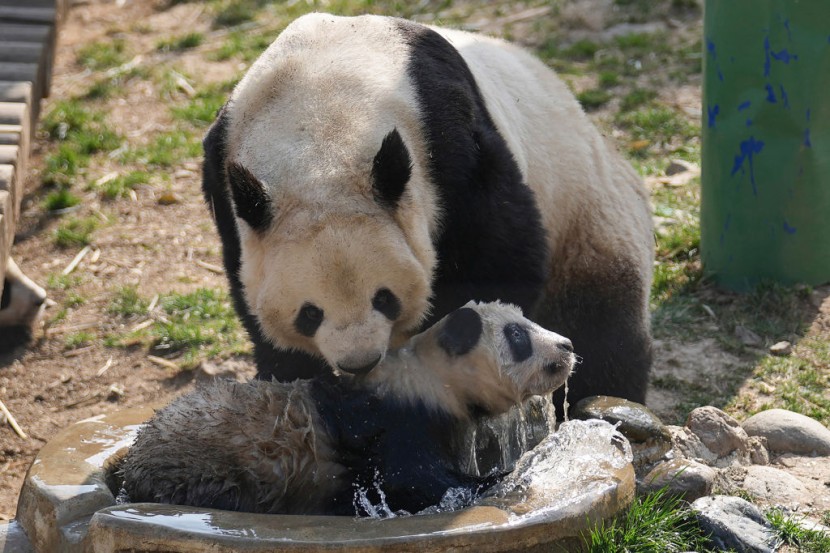Ya Ya, a giant panda from China, has been in the US since it landed in 2003. Many people welcomed the panda at the Memphis International Airport, which was a high point in US-China relations. It can be recalled that that was two years after China joined the World Trade Organization with the support of the US.
20 years later, Ya Ya bids farewell to the US and boarded a plane that will take her back to her home country. Ya Ya has become a symbol of the current relations between China and the US, which have called it their lowest point, according to CNN.
For almost three months, there were heated discussions in China about the treatment of Yaya by the Memphis Zoo. This only showed how antagonistic the relationship between Us and China has become.
Was Ya Ya Mistreated?
The panda has appeared skinny in photos, along with missing clumps of fur. A lot of Chinese people were shocked and saddened by her condition. Some think that she wasn't given proper care and attention, which was an accusation levied by animal advocates in 2021, but was only denied by the Memphis Zoo.
Ya Ya and her male companion, Le Le, were set to return to their home country this year as this year marks the end of the 20-year loan. Unfortunately, Le Le died suddenly due to heart disease in early February, which only fueled suspicions of mistreatment.
Read also: US-China 'Conflict and Confrontation' Inevitable, Bejing's New Foreign Minister Warns
China's Panda Diplomacy
Based on China's panda diplomacy, the bears were meant to serve as an envoy of friendship between China and their host country. However, for the Chinese, Ya Ya has become a symbol of what they see as the US' bullying and suppression of China.

China has long used Panda diplomacy as a way to strengthen diplomatic ties with other countries, and Ya Ya's situation has put a strain on the relationship between China and the US. The Memphis Zoo has denied any mistreatment of Ya Ya, but the controversy surrounding her condition has highlighted the complexities of using animals for diplomatic purposes.
The use of animals for diplomatic purposes is not a new phenomenon. Throughout history, different countries have used various species to forge and strengthen relationships with other nations. Pandas are particularly popular in this regard due to their cute appearance and gentle nature.
China has been using pandas as part of its diplomacy efforts since the 1950s when it gifted two bears named Ping-Ping and An-An to the Soviet Union. Since then, China has sent over 30 giant pandas on loan to around 20 countries worldwide.
While panda diplomacy may seem harmless on the surface, there are ethical concerns surrounding this practice that cannot be ignored. Many animal welfare advocates argue that keeping these endangered animals captive for prolonged periods can cause them psychological distress and harm their physical health.
Moreover, some critics see panda loans as a form of coercion rather than genuine friendship-building initiatives by China's government towards foreign governments or institutions such as zoos, where they end up being placed under limited care conditions compared with those at home in natural habitats.
In Ya Ya's case specifically, her sudden decline after Le Le's death raises questions about how well she was cared for during her time at Memphis Zoo—especially given reports indicating previous mistreatment claims against zookeepers who were responsible for caring after both Yang Guang (her mate) & LeLe before his passing away earlier last month; something which could strain US-China relations further if proven true amidst ongoing trade tensions between both states.
Overall though: Panda Diplomacy appears set here to stay despite all related criticism leveled from either side regarding treatment standards or motives behind sending these rare mammals abroad
Related article: US-China Relations in Serious Trouble Amid Taiwan President's Visit








